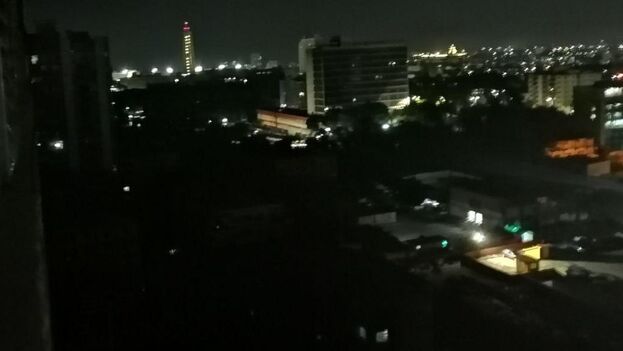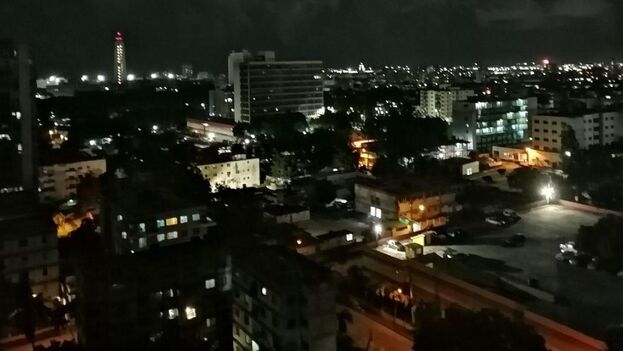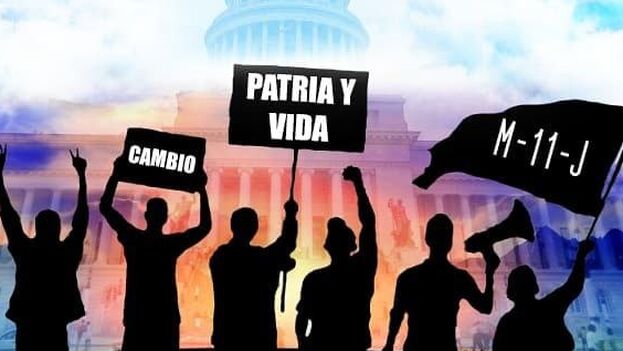
![]() 14ymedio, Reinaldo Escobar, Havana, 24 September 2021 — The blackout on Tuesday night was brief, but as soon as it got dark a man’s voice was heard shouting, “Why don’t you clap now?”
14ymedio, Reinaldo Escobar, Havana, 24 September 2021 — The blackout on Tuesday night was brief, but as soon as it got dark a man’s voice was heard shouting, “Why don’t you clap now?”
He was speaking directly to neighbors who at nine o’clock “honor” the doctors engaged in the fight against the pandemic. To clarify, in this neighborhood these are the only neighbors who, in addition to clapping forcefully, shout, howl and hit metal objects, as if instead of entertaining the health workers they were provoking an enemy.
In addition to clapping forcefully, they shout, howl and hit metal objects, as if instead of entertaining the health personnel they were provoking an enemy
Twenty-seven years ago, when I was writing a column titled Letters from Havana in the German weekly Wochenpost, I published an article for foreigners, explaining the meaning of a blackout. At the time, I did not consider myself an independent journalist, but as a freelancer, which seemed more elegant to me.
I began my dissertation by narrating the joy that erupted in any neighborhood the moment the lights come on, forgetting about people trapped in elevators, interrupted television shows whose viewers had not been able to see the end of the day’s episode of their favorite novela, students who could not do their homework and, of course, people who were unable to cook because their cooking appliances were electric.
On one occasion I recounted an incident involving impatient neighbors who threw bottles and garbage from their balconies at midnight because the electricity had not been restored according to schedule. To conclude, I added, continue reading
Today, that text, which would be taken as confrontational from the official angle, seems to me light, complacent, folkloric.

I am not saying that people aren’t happy when the electrons resume their travel through conductors, that is, when the lights return. Of course they are, but the enthusiasm is not the same and neither is the anger manifested the moment the blackout arrives.
The chauvinistic vanity that convinced us that we are part of the “civilized world” also made us believe that we were not to be compared with the 780 million people on this planet who currently live without electricity.
Those are “the others,” we live in the Northern Hemisphere, also in the Western one. As if that were not enough, here we created a socialist revolution with our sight set on that Leninist definition that “communism is the power of the Soviets plus electricity.” According to statistics, our access to electricity is 99.8%, but they fail to add the adjective “guaranteed” to the noun “access.”
The last one was short and partial. The houses in the neighborhood were dark, but in government buildings, generators were activated immediately. In the Plaza de la Revolución the lights remained on
From our balcony on the 14th floor you can appreciate the magnitude of the blackouts. The houses in the neighborhood were dark, but in government buildings, generators were activated immediately. In the Plaza de la Revolución the lights remained on.
The forecasts are not favorable. Power plants suffer from lack of maintenance and technological obsolescence; the fuel that powers them threatens to become more scarce every day and even the cables show signs of fatigue.
The irritation caused by these blackouts undermines citizen enthusiasm. Furthermore, it even diminishes the desire to applaud the sacrifice of doctors, because among other things, in a subtle but evident way, the propaganda has politicized this tribute, extending it to those responsible for the darkness.
Translated by: Silvia Suárez
____________
COLLABORATE WITH OUR WORK: The 14ymedio team is committed to practicing serious journalism that reflects Cuba’s reality in all its depth. Thank you for joining us on this long journey. We invite you to continue supporting us by becoming a member of 14ymedio now. Together we can continue transforming journalism in Cuba.

